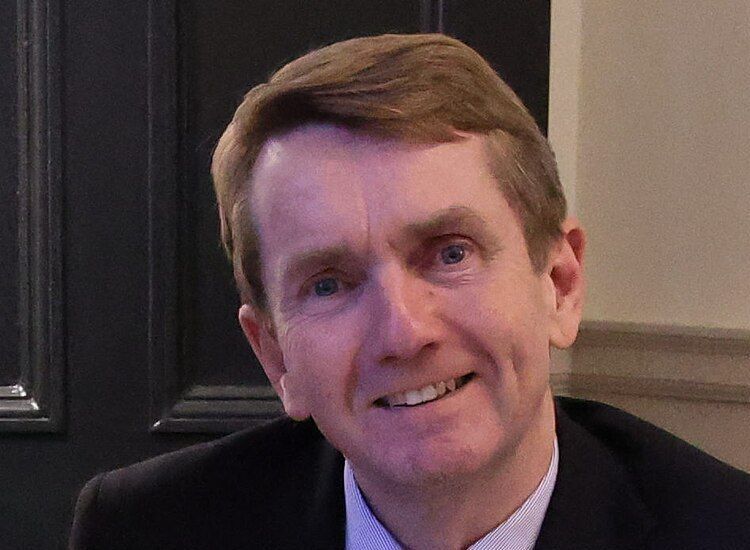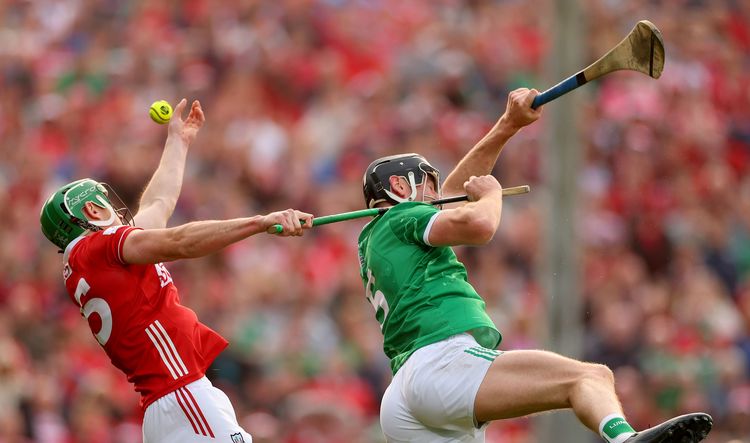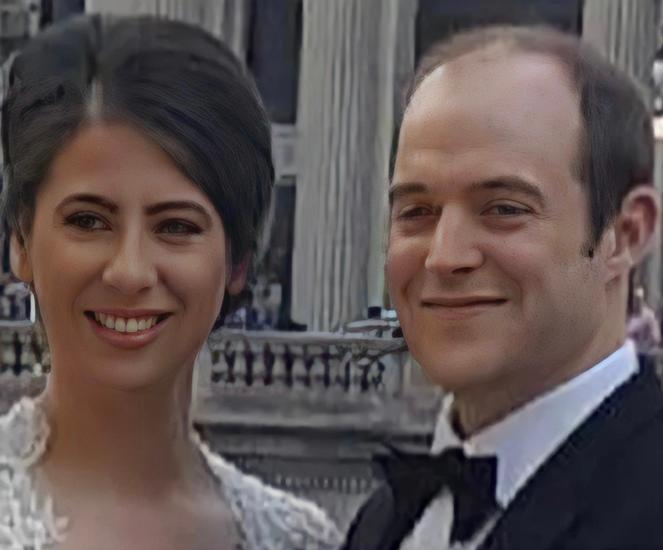The Rev. James Martin, S.J.
Between the Lines / By Peter McDermott
Three out of 10 Americans believe that abortion is permissible in all circumstances, while two out of 10 believe it is always morally wrong. Half of the citizens of this country take views that are along a spectrum between those two positions.
There are many Catholics and people of other faiths who would never see abortion as an option for themselves but are against a blanket ban or even indeed any legal restriction. Likewise there are those who assent to the pro-life ideal being part of a conservative agenda, but in practice have no moral objection to someone terminating a pregnancy and view it as a private matter.
“Three-quarters of Americans say they want to keep in place the landmark Supreme Court ruling, ‘Roe v. Wade,’ that made abortion legal in the United States,” a NPR report of June 7, 2019, began, “but a strong majority would like to see restrictions on abortion rights, according to a new NPR/PBS NewsHour/Marist Poll.”
The NPR report continued, “What the survey found is a great deal of complexity — and sometimes contradiction among Americans — that goes well beyond the talking points of the loudest voices in the debate.”
This is the world that the elected official must navigate. It doesn’t help that the U.S. has a winner-takes-all system with two parties that are coalitions of diverse voting blocs. Some politicians will be aware, too, that its legal status is but one factor that determines a society’s abortion rate. And so, if there was ever an issue that required Catholic elected representatives to be guided by a “formed conscience,” it is surely this one.
The Rev. James Martin, editor-at-large for the Jesuit weekly America, has argued the failure of church leaders to emphasize this aspect of Catholic tradition is helping to fuel extremism.
His long essay,“How Catholic Leaders Helped Give Rise to Violence at the U.S. Capitol,” was published in America a week after the assault; but in one sense it had been months in the works, for many people had made contact to tell him of their alarm at the increasing level of extremist rhetoric they were hearing from clergymen in their parishes and dioceses.
Martin began with the Rev. James Altman, the pastor of St. James the Less Parish in La Crosse, Wis., who uploaded a video to YouTube that has been viewed over 1.2 million times. “The video’s title voiced what an increasing number of Catholic bishops and priests were saying in the run-up to the presidential election: ‘You cannot be a Catholic and a Democrat.
“‘Their party platform absolutely is against everything the Catholic Church teaches,’ said Father Altman, as music from Beethoven’s Symphony No. 7 swelled in the background. ‘So just quit pretending that you’re Catholic and vote Democrat. Repent of your support of that party and its platform or face the fires of hell.’”
The Jesuit Martin, a best-selling author, offered in the interests of full disclosure that Altman referred to him in the video as a “hyper-confusion spreading heretic”
He countered in his America piece, “There are traditional restrictions on Catholic clergy endorsing political candidates.
“As Pope Francis has said, the church is called ‘to form consciences, not to replace them.’ More bluntly, a Vatican directive from 1994 says that a priest ‘ought to refrain from actively engaging himself in politics.’”
Bishop William Patrick Callahan, though, criticized the priest’s “angry and judgmental” tone but he understood “the undeniable truth that motivates [Father Altman’s] message.”
That seemed only to encourage Altman to double down: he had a follow-up video titled “Liberal Catholics are Wolves in Sheep’s Clothing,” while he appeared on a LifeSite News show “Mother Miriam Live” in an episode titled “If you vote for Biden you’re voting for the murder of babies.”
Martin said, “A few weeks later, the Rev. Ed Meeks, the pastor of Christ the King Church in Towson, Md., preached a homily, also uploaded to YouTube, under the title ‘Staring into the Abyss,” in which he declared the Democratic Party the ‘party of death.’
“Father Meeks’s video, which has received over two million views, was warmly commended by Bishop Joseph Strickland, of Tyler, Texas, who tweeted it out to his 40,000 followers with the message ‘Every Catholic should listen to this wise and faithful priest.’”
Martin added, “Both videos focused on abortion. If a candidate was pro-choice, the priests said, then a Catholic could never vote for him or her because abortion is an intrinsic evil. Bishop Thomas Daly of Spokane summed up this approach in one interview by asking, ‘If abortion is intrinsically evil...how can Catholics vote for a candidate like Biden?’
“This, however, does not adequately reflect church teaching,” Martin said, “which leaves the final choice on voting to an individual’s formed conscience, recognizing that there are many important issues that a voter might have to consider.”
“As the U.S.C.C.B. states in ‘Faithful Citizenship’: There may be times when a Catholic who rejects a candidate’s unacceptable position even on policies promoting an intrinsically evil act may reasonably decide to vote for that candidate for other morally grave reasons.
“One morally grave reason’ would be if the pro-life candidate were unhinged, unfit to govern or somehow posed a threat to the republic—as President Trump confirmed he was by inciting a mob that attacked the U.S. Capitol, causing a stunningly violent riot that left five people dead,” Martin wrote.
The videos and statements from the above-mentioned churchmen, he said, “was part of a pattern of similar commentary from members of the clergy. Most did not make the news, as they were heard in homilies and read in parish bulletins. But they were no less effective in communicating the message that the election was an almost apocalyptic battle between good and evil.”
The Jesuit continued, “In the weeks before the election, I received Facebook messages from many Catholics struggling to make sense of pastors who cast the election in such terms or condemned Democrats outright, either from the pulpit or in private conversations.”
He cited an example, “The Rev. David Miller, the pastor of St. Dorothy’s Parish in North Carolina, said in a homily posted to YouTube that if ‘[Mr. Biden] dies the way he is now, unrepentant for his years of denying Christ...before repentance...you and I know where he will go: He will be damned to hell for all eternity.’”
Cardinal Raymond Burke, the former Archbishop of St. Louis and a former Vatican official, when a guest on EWTN’s show “The World Over,” spoke of Biden as involved in a “grave, immoral evil that is the source of scandal.”
Martin continued, “Perhaps the most frequent promoter of these arguments was Archbishop Carlo Maria Viganò, the former Vatican nuncio to the United States and one of Pope Francis’s most relentless critics. Mr. Biden, he said, is ‘a puppet manipulated by the elite, a puppet in the hands of people thirsty for power and willing to do anything to expand it.’ Archbishop Viganò predicted that the election of Mr. Biden would usher in a near-Satanic age characterized by ‘ecumenism, Malthusian environmentalism, pansexualism and immigrationism.’”
Martin quoted Pope Francis from his address to the Joint Session of Congress in 2015, “[T]here is another temptation which we must especially guard against: the simplistic reductionism which sees only good or evil; or, if you will, the righteous and sinners. The contemporary world, with its open wounds which affect so many of our brothers and sisters, demands that we confront every form of polarization which would divide it into these two camps.”
“For myself,” the America editor-at-large said, “I offered a prayer at the Democratic National Convention but would have been happy to have offered the same prayer, word for word, at the Republican convention, if I had been asked. And I did not endorse either candidate. The traditional restrictions on clergy are sensible guidelines.”
Later, he said, “Can anyone doubt that the moral calculus proposed by some Christian leaders, including Catholic priests and bishops, framed in the language of pure good versus pure evil, contributed to the presence of so many rioters brandishing overtly Christian symbols as they carried out their violence?”
Martin said, “[W]hen demonizing candidates as monsters, one runs the risk of people drawing the conclusion that fighting against this, by any means necessary, is an absolute moral imperative. If one party is the ‘party of death,’ then eradicating it is a triumph for life.
“This faulty moral reasoning—you will go to hell if you vote for Mr. Biden, you commit a mortal sin by not voting for President Trump, the Democrats are the party of death—was exacerbated by widespread personal vilification of candidates from Catholic leaders,” Martin said, offering the example of an attack by Bishop Richard Stika of Knoxville, Tenn. on Biden and his “sidekick,” Senator Kamala Harris.
Another was from the Rev. Frank Pavone, the national director of Priests for Life, who wrote in a tweet that has since been deleted, “Biden and his morally corrupt, America-hating, God hating Democrat party can’t say a goddamn thing in support of their loser candidate without using the word Trump? What the hell do you have to say for yourselves losers?”
“Personal vilification from members of the clergy inevitably gives rise to a lack of respect from the faithful, making it easier for those in the pews to revile government and civic leaders,” Martin wrote, “Why respect someone who is a ‘puppet,’ ‘bound for hell,’ not a ‘good and faithful Catholic’ or ‘a walking and talking scandal,’ as another priest said? If bishops, the pre-eminent teachers in their dioceses, treat people with such contempt, then one should not be surprised when the faithful take their lead and, in turn, treat their institutions as something to be taken, razed, destroyed—because they are destroying institutions run by evil men and their ‘sidekicks.’
“For many people who were encouraged in such dualistic thinking by their pastors, then, the choice was obvious,” he said. “Storming the U.S. Capitol and, as we now know, planning to abduct or harm lawmakers, was a fight for life, for morality—for God.”
Martin added, “Those who broke windows, trampled on journalists, terrified legislators and destroyed property likely felt they were doing something holy. Why wouldn’t they? This was a fight against evil.”
The Jesuit said, “The evaluation of candidates often does involve questions of good and evil, but they are questions about policies and prudential judgments about the effect of electing a candidate, not absolute rules and not summary condemnations of a candidate’s moral goodness.
“Thanks to many bishops and priests, however, those nuanced views, as well the rich tradition on the primacy of the formed conscience and the degrees of ‘moral cooperation’ were lost; the lack of any real action against priests and bishops promoting false dichotomies meant that people assumed simplistic bromides were ‘church teaching’; and the ability of so many apocalyptic voices to command a public stage through a coordinated effort by the far-right media gave these views a bigger megaphone.
“The mistake for which Catholic leaders should be corrected,” Fr. Martin wrote, “the mistake for which the church now needs to repent, is not simply casting this election in terms of good and evil; it is pretending that real questions of good and evil could be simplified to the point where violent responses, even acts of domestic terrorism, become thinkable and then are carried out.”









